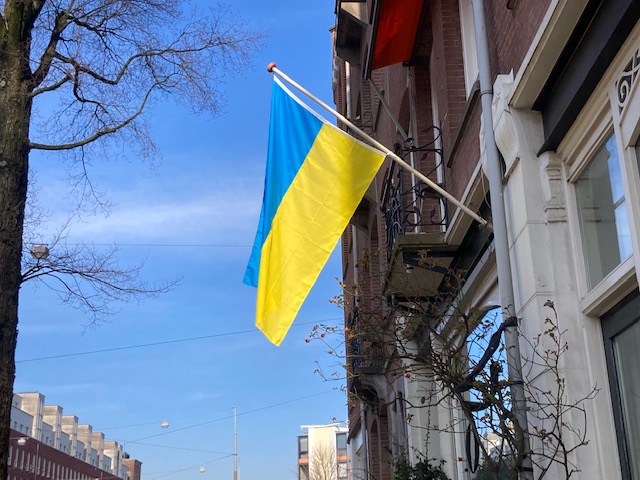Confusion as court rulings differ on third-country nationals

The situation surrounding third-country nationals who were living in Ukraine and fled to the Netherlands after the Russian invasion remains confused following conflicting court cases, and it is still unclear who can stay and who has to return to their country of origin.
Refugee minister Eric van der Burg admitted on Friday that the situation is “extremely complex” after some were given the green light to remain in the Netherlands in court verdicts, but others were told to leave.
The Council of State, the highest Dutch administrative court, said at the end of January that third-country nationals should leave official refugee accommodation by Tuesday but several separate groups have gone to court, arguing that the January decision did not apply to them.
A string of rulings over the past month have conflicted with the Council of State verdict, but also from each other, adding further complications.
Judges in Roermond, Haarlem and Den Bosch have said that third-country nationals can stay in the Netherlands as long as Ukrainians themselves, whereas judges in Zwolle, Utrecht, The Hague and Arnhem judges have ruled that the Council of State, as the highest legal body in the country, should be respected.
Amsterdam district court has asked the European court for its legal opinion and has said it will not expel any third-country nationals from their accommodation until it has an answer.
In total some 2,500 third-country nationals came to the Netherlands along with the influx of Ukrainian refugees. Some were students or working, others married to Ukrainian nationals.
In essence, people who have lost their case in court must leave refugee housing but those who are still involved in legal cases can stay. But this is creating “enormous uncertainty in law”, lawyer Marjon Ristra-Peeters told broadcaster NOS.
“We can’t have a situation in which one group of people can stay and the others have to go, depending on who the judge was in their case,” she said.
Of the 2,500 people involved, 750 have applied for asylum in the Netherlands, 250 have requested a different sort of residency permit and 1,500 have not yet told the immigration service what their plans entail.
Thank you for donating to DutchNews.nl.
We could not provide the Dutch News service, and keep it free of charge, without the generous support of our readers. Your donations allow us to report on issues you tell us matter, and provide you with a summary of the most important Dutch news each day.
Make a donation